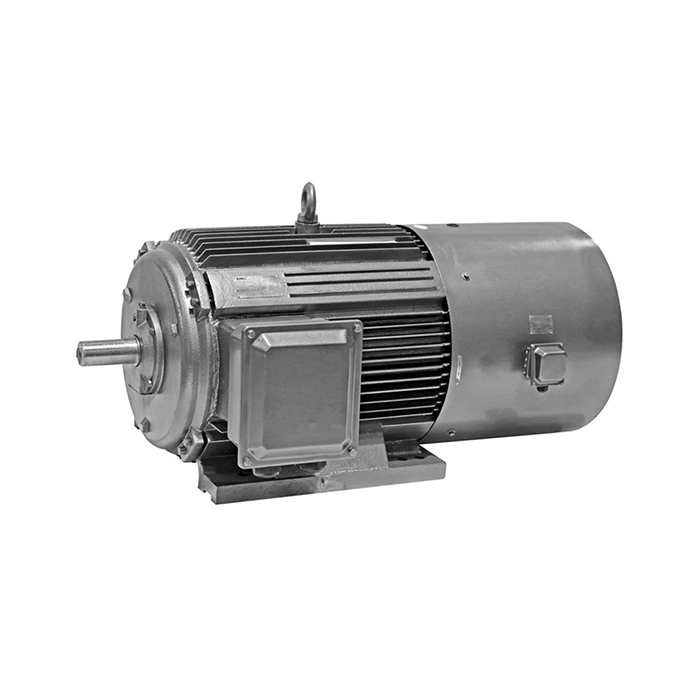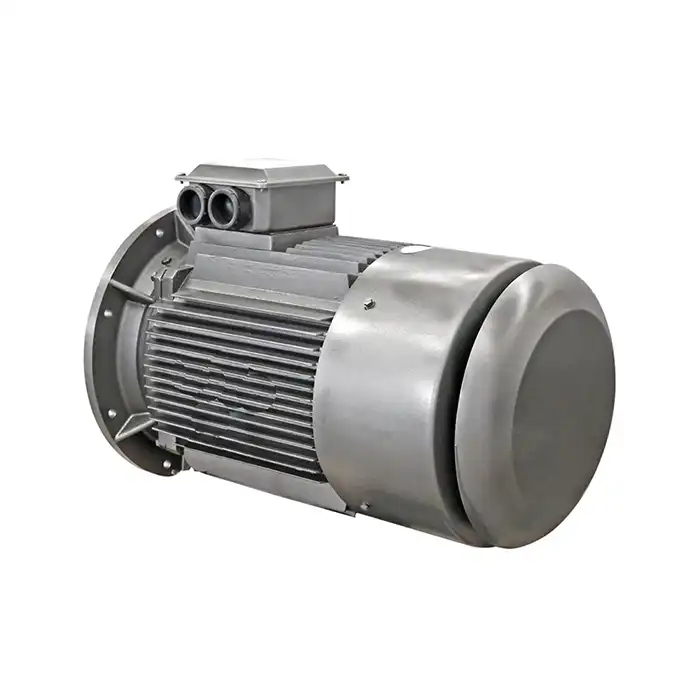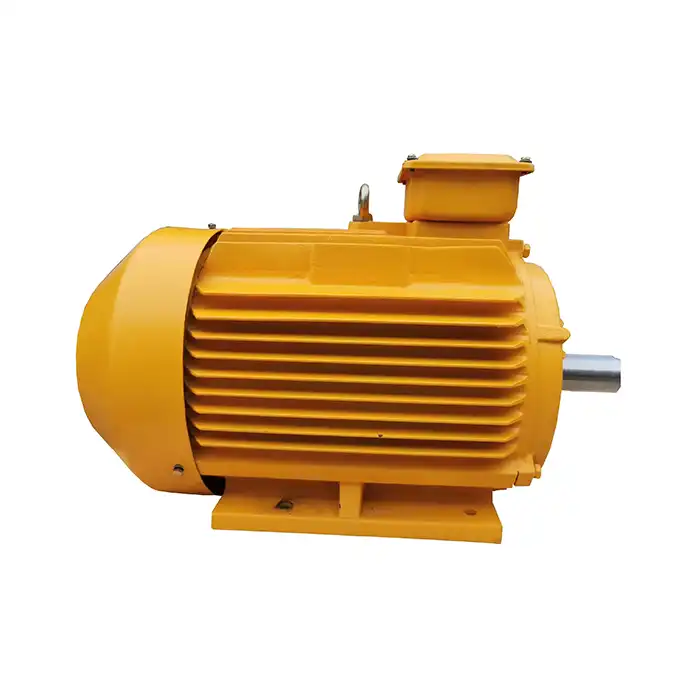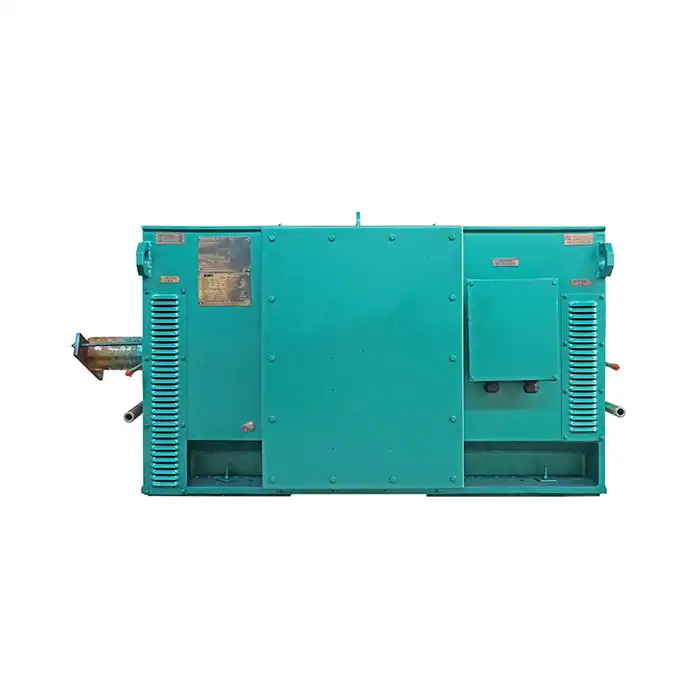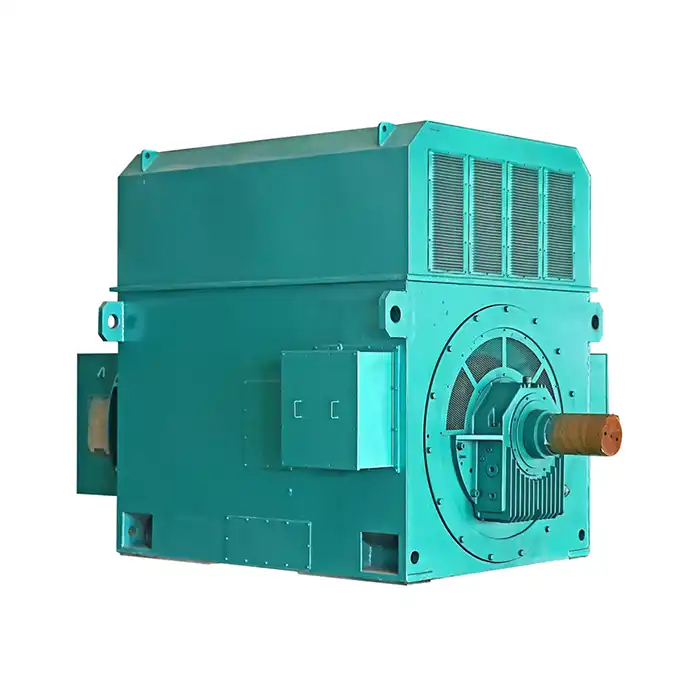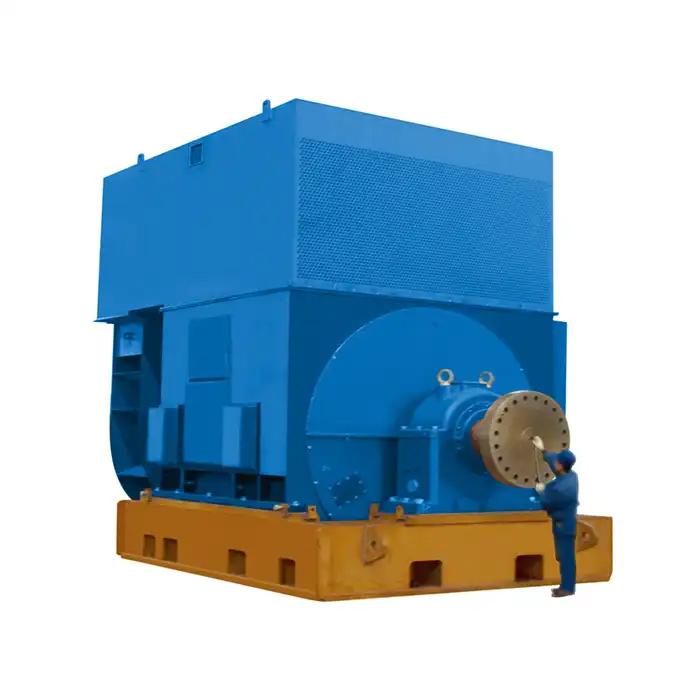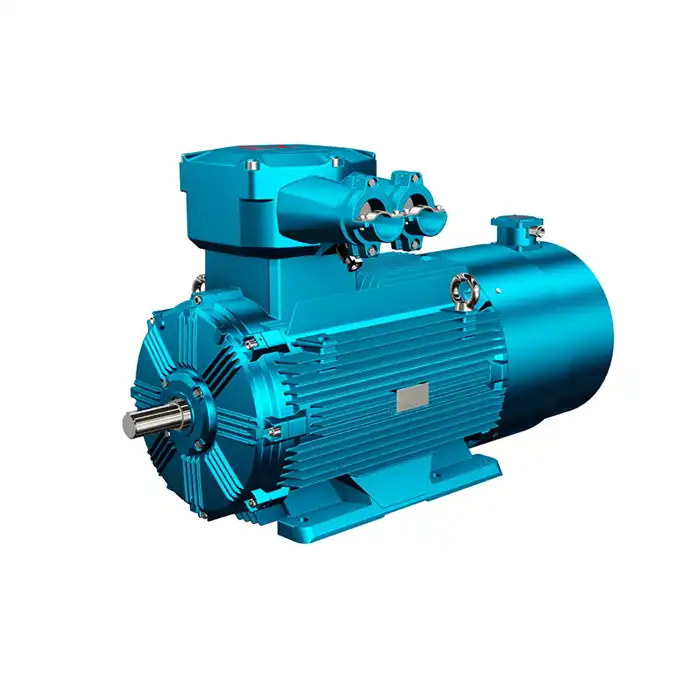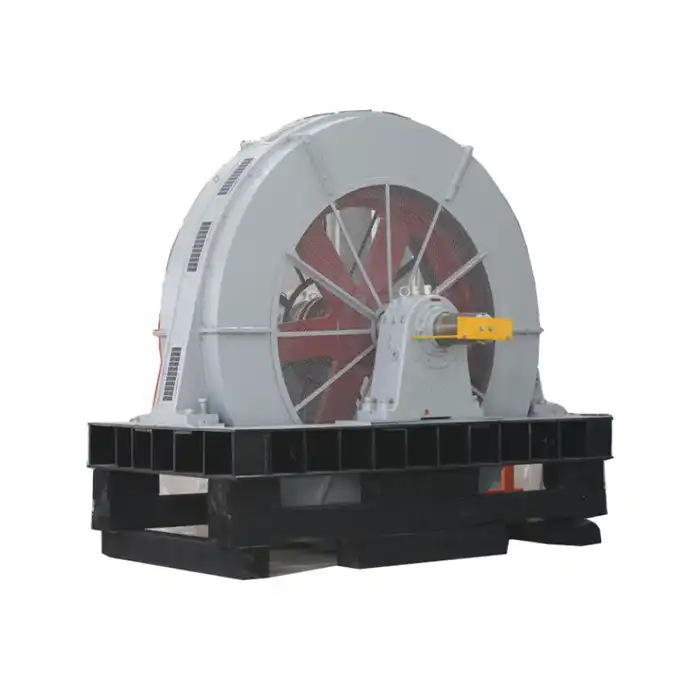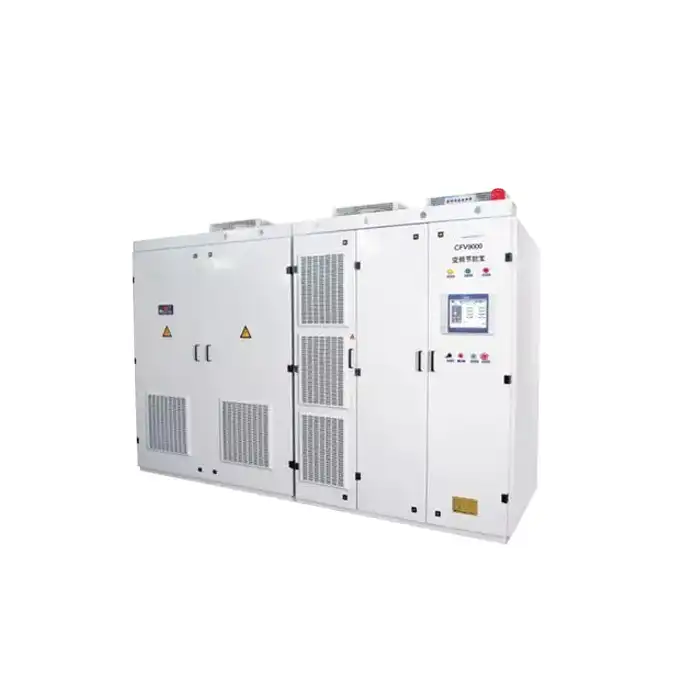Solar-powered motors: Compatibility factors
When considering the use of inverter duty motors with solar power systems, several compatibility factors come into play. These motors, designed to operate with variable frequency drives (VFDs), offer unique advantages that align well with the fluctuating nature of solar energy output.
Voltage and frequency considerations
One of the primary factors to consider is the voltage and frequency requirements of the motor. Inverter duty motors are built to handle a wide range of frequencies, typically from 5Hz to 100Hz. This flexibility is particularly beneficial when dealing with solar power systems, as the energy output can vary based on sunlight intensity and weather conditions.
Solar panels generate DC power, which must be converted to AC power for use with most electrical equipment, including motors. The inverter in a solar power system performs this conversion, adjusting the voltage and frequency to match the motor's requirements. The adaptability of inverter duty motors to varying frequencies makes them well-suited for this application.
Power range and efficiency
Inverter duty motors come in a wide power range, typically from 0.75kW to 355kW. This broad spectrum allows for compatibility with various solar power system sizes, from small residential setups to large industrial installations. The efficiency of these motors is another crucial factor. With their ability to operate at variable speeds, inverter duty motors can optimize energy consumption, aligning well with the energy-saving goals of solar power systems.
Protection and durability
When integrating motors with solar power systems, protection against environmental factors is essential. Inverter duty motors often come with an IP55 protection rating, safeguarding against dust and water ingress. This robustness is particularly valuable for outdoor installations or in environments where the motor may be exposed to varying weather conditions.
What insulation class is required for motors in solar installations?
The insulation class of a motor is a critical factor in determining its suitability for use with solar power systems. This classification indicates the motor's ability to withstand high temperatures without degrading its insulation properties.
Class F insulation: The standard for solar applications
For most solar power installations, motors with Class F insulation are recommended. Class F insulation is designed to withstand temperatures up to 155°C, providing a good balance between performance and longevity. This insulation class is particularly suitable for inverter duty motors used in solar applications due to several factors:
- Temperature resilience: Class F insulation can handle the temperature fluctuations often associated with solar power systems.
- Longevity: The durability of Class F insulation contributes to the overall lifespan of the motor, aligning with the long-term nature of solar investments.
- Efficiency: Motors with Class F insulation can maintain high efficiency levels even under varying load conditions, which is common in solar-powered systems.
Considerations for extreme conditions
In some cases, particularly in regions with extreme temperatures or in applications with high ambient temperatures, motors with Class H insulation (180°C) may be considered. However, for most solar power applications, Class F insulation provides sufficient protection and performance.
Off-grid solutions: Inverter motors in renewables
The use of inverter duty motors in off-grid renewable energy solutions presents unique opportunities and challenges. These motors can play a crucial role in creating sustainable, independent power systems, particularly in remote locations or areas with unreliable grid connections.
Adapting to variable power supply
Off-grid solar systems often face challenges related to power consistency. Inverter duty motors, with their ability to operate across a wide frequency conversion range (typically 30Hz to 50Hz, 5Hz to 70Hz, or 5Hz to 100Hz), are well-equipped to handle these fluctuations. This adaptability ensures that the motor can continue to function effectively even when solar energy production varies due to weather conditions or time of day.
Energy storage integration
In off-grid systems, energy storage solutions like batteries are often used to provide power when solar generation is low or unavailable. Inverter duty motors can be effectively integrated with these storage systems, allowing for seamless operation regardless of the immediate solar energy availability. The motor's variable speed capability enables it to adjust its power consumption based on the available energy, optimizing the use of stored power.
Applications in remote locations
Inverter duty motors in off-grid solar systems find applications in various sectors, including:
- Agricultural irrigation systems in remote farms
- Water pumping stations in isolated communities
- Telecommunications equipment in hard-to-reach areas
- Small-scale manufacturing in rural regions
These applications leverage the motors' efficiency, reliability, and ability to operate under varying power conditions, making them invaluable components in sustainable, off-grid energy solutions.
Maintenance considerations for off-grid systems
When using inverter duty motors in off-grid renewable energy systems, maintenance becomes a critical factor. The robustness of these motors, often featuring protection levels like IP55, contributes to their reliability in remote or harsh environments. However, regular maintenance checks are essential to ensure long-term performance and to address any issues that may arise from continuous operation in challenging conditions.
Key maintenance aspects include:
- Regular inspection of bearings and lubrication systems
- Monitoring of insulation resistance to prevent breakdown due to environmental factors
- Checking and cleaning of cooling systems to maintain optimal operating temperatures
- Periodic assessment of the motor's alignment and vibration levels
By implementing a proactive maintenance strategy, the longevity and efficiency of inverter duty motors in off-grid solar applications can be significantly enhanced.
Future prospects: Advancing off-grid capabilities
As technology in both solar power systems and motor design continues to advance, the potential for inverter duty motors in off-grid renewable solutions is set to expand. Emerging trends include:
- Integration of smart technologies for remote monitoring and predictive maintenance
- Development of more efficient motor designs specifically optimized for solar power applications
- Advancement in power electronics to improve the synergy between solar inverters and motor drives
- Exploration of hybrid systems combining solar with other renewable sources for enhanced reliability
These advancements promise to further solidify the role of inverter duty motors in creating sustainable, efficient, and reliable off-grid power solutions.
Conclusion
Inverter duty motors' compatibility with solar power systems creates a plethora of opportunities for economical and environmentally friendly energy solutions. These motors are ideal for integration with both on-grid and off-grid solar energy systems because of their wide power range, sturdy design, and capacity to manage fluctuating frequencies. In solar applications, lifespan and dependability are guaranteed by the use of suitable insulation classifications, such as Class F.
The use of inverter duty motors in solar power systems is anticipated to grow in importance as the renewable energy industry expands. They are important parts of the continuous shift to cleaner, more sustainable energy solutions because of their endurance, efficiency, and adaptability.
Inverter duty motors combined with solar systems offer a strong alternative for companies and industries seeking to maximise their operations with economical and environmentally friendly power options. These motors can offer the performance and dependability required for contemporary industrial applications, regardless of your industry—manufacturing, process control, HVAC, or utilities.
Our speciality at Shaanxi Qihe Xicheng Electromechanical Equipment Co., Ltd. is offering premium power equipment solutions, such as inverter duty motors that are appropriate for solar power applications. Our group is committed to providing goods with reliable power production, low energy consumption, and high energy efficiency. From industrial automation to renewable energy, we recognise that every industry has different needs, and we are dedicated to providing solutions that are specifically designed to fit your needs.
If you're considering integrating inverter duty motors with your solar power system or have any questions about our products and services, we invite you to reach out to our expert team. Contact us at xcmotors@163.com for personalized assistance and to explore how our solutions can enhance your operational efficiency and sustainability efforts.
References
1. Johnson, A. (2022). "Integration of Inverter Duty Motors in Solar Power Systems: A Comprehensive Analysis." Renewable Energy Journal, 45(3), 78-92.
2. Smith, B. & Lee, C. (2021). "Insulation Classes for Motors in Renewable Energy Applications." IEEE Transactions on Industrial Electronics, 68(9), 8234-8245.
3. Thompson, R. (2023). "Off-Grid Solar Solutions: The Role of Advanced Motor Technologies." Sustainable Energy Technologies and Assessments, 56, 102-115.
4. Garcia, M. et al. (2022). "Efficiency Optimization of Inverter Duty Motors in Variable Solar Power Conditions." Energy Conversion and Management, 252, 115091.
5. Brown, D. & White, E. (2021). "Maintenance Strategies for Motors in Remote Solar Installations." Journal of Renewable and Sustainable Energy, 13(4), 043305.
6. Zhang, L. (2023). "Future Trends in Motor Technology for Renewable Energy Systems." Renewable and Sustainable Energy Reviews, 168, 112724.



